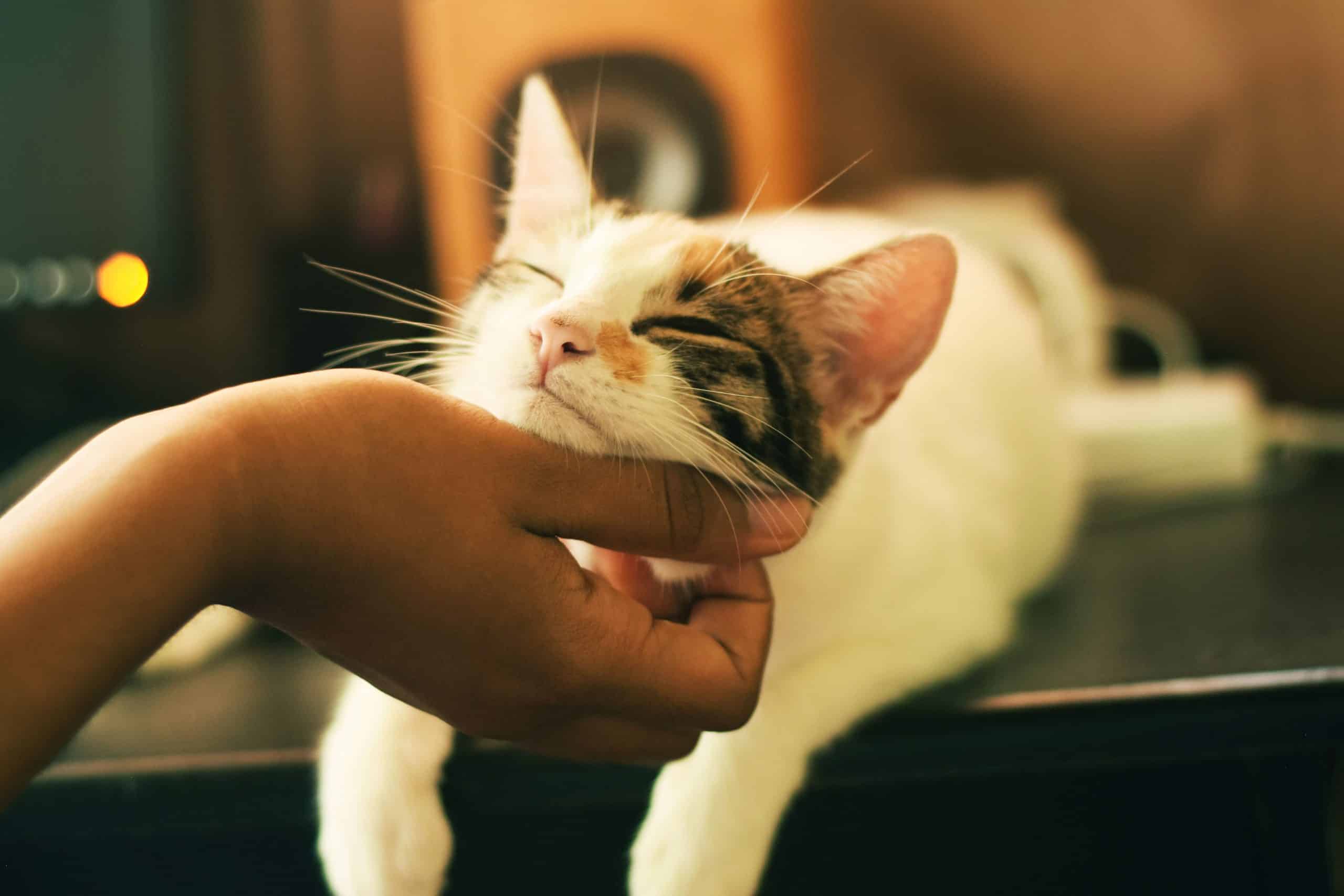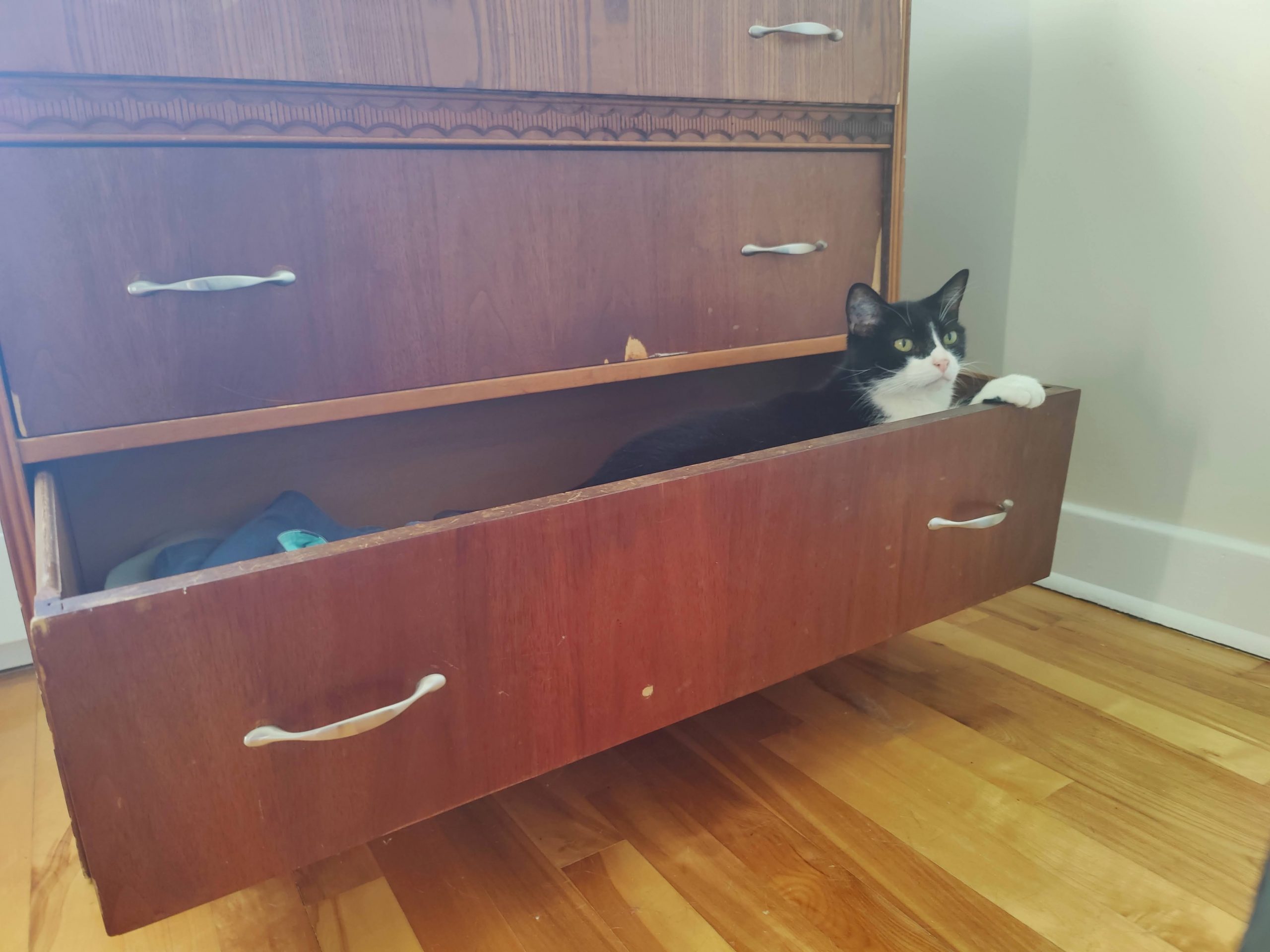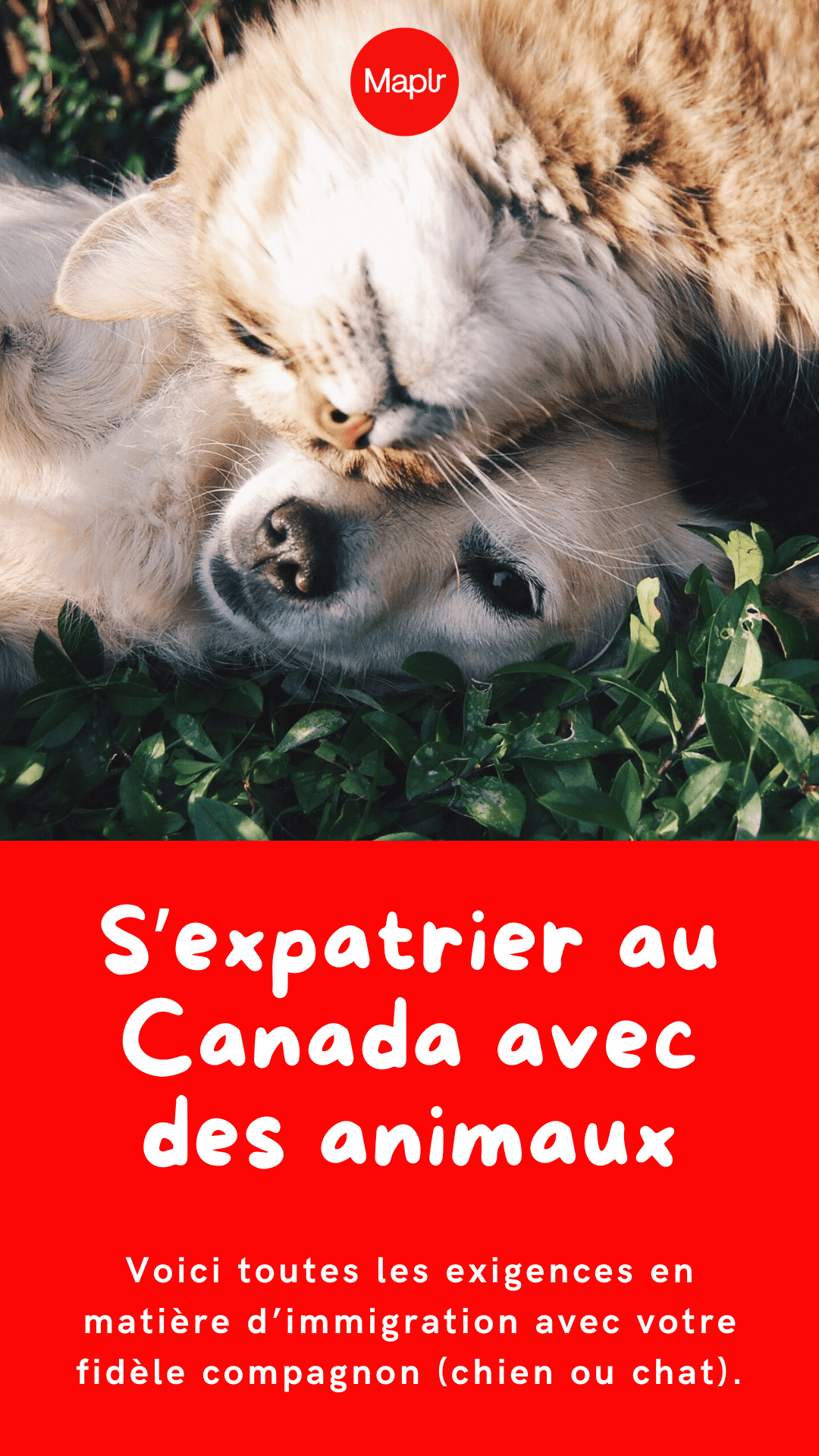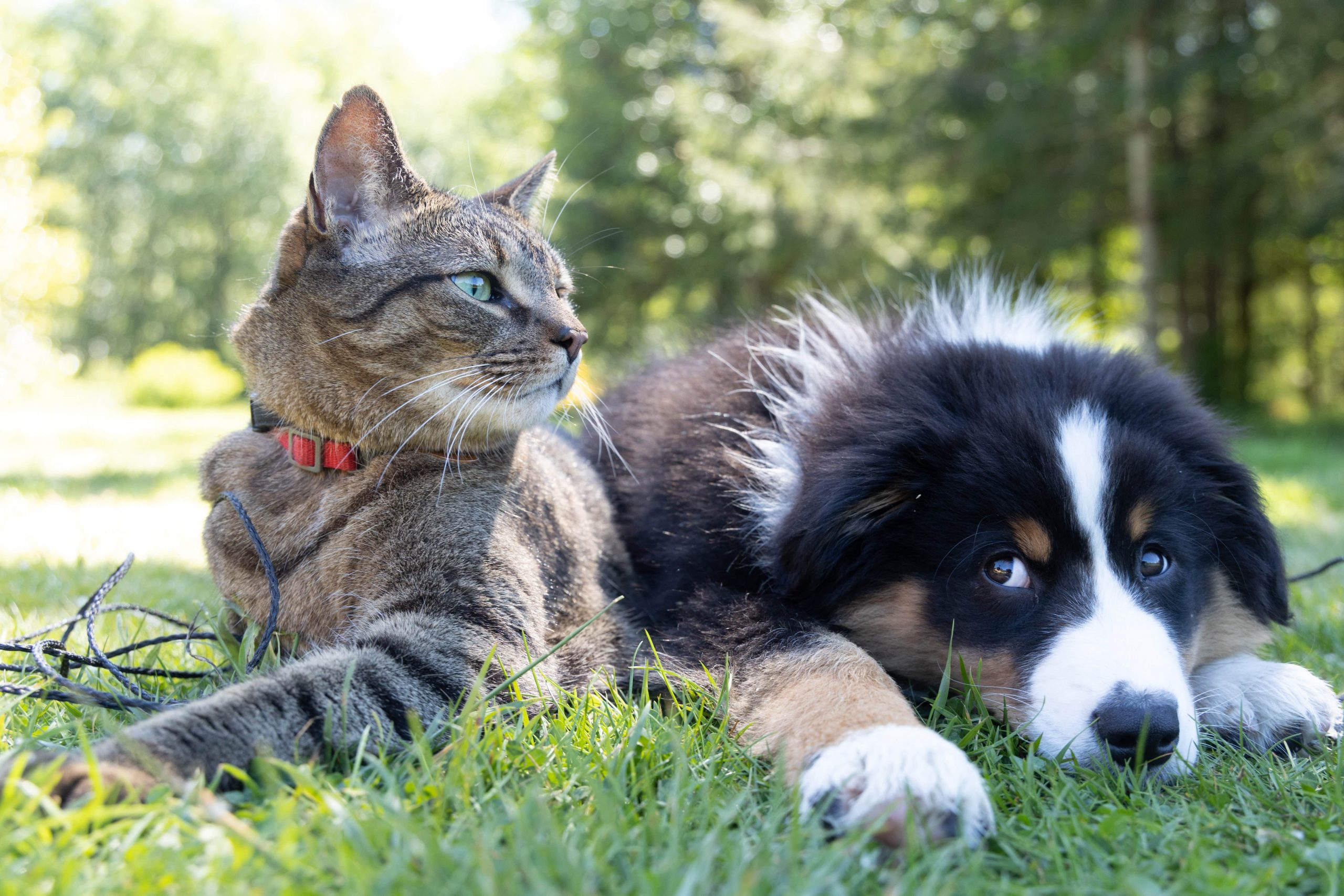Expatriating to Canada with your pets?
Are you planning to travel to Canada with your four-legged friends?
Here are all the requirements for immigration with your faithful companion (dog or cat).
Expatriating to Canada with your pets
Canada allows foreign visitors and workers to travel to Canada with their pet(s).
Contrary to France, you are not obliged to to have your pet tattooed or chipped to enter the territory.
It is also not necessary to mention that you wish to leave with your pet when applying for a work permit.
Info :
Your pet will be identified as personal pet by the Canadian authorities. In other words, this means that it is "intended to live with the owner who is bringing the animal into Canada as a pet. It is not intended to be transferred or given to another person upon arrival in Canada and/or is not intended for commercial purposes, such as breeding, raising or selling its offspring, exhibition, sale of genetic material, sale of the dog itself, scientific/research use, or special training status (whether or not there is a profit or transfer of funds)."
For more information, please visit the Canadian government website.
Attention, as far as dogs are concerned, the owner must be the importer of the animal!
If an immigration officer wishes to verify this information, you must be able to provide documentation that demonstrates your ownership status.

Vaccination requirements
Whether you decide to expatriate with your dog or cat, if your pet is less than three months old, you must provide proof of age (which you can obtain from a veterinarian).
On the other hand, if your dog is over eight months old, a certificate of vaccination against rabies will be required.
This vaccination obligation is not specified for cats.
Before you go abroad, remember to take your dog to the vet. You must have with you proof of vaccination of your pet. This will be checked by a competent person at the time of your expatriation.
Airlines and transportation
Please note that each airline has its own requirements for travel with pets.
Some additional documents can be verified by the company.
The size and weight of the animal will be considered when purchasing the plane ticket.
For example, some airlines may accept small cats in the cabinothers will refuse to carry animals, even in the hold.
⚠️ Air Canada limits the transport of a dog in the hold to 45 kg, including the cage.
For the big dogs, Air France allows pets up to 75 kg (dog and crate included).
We advise you to get information from IATA (International Air Transport Association), which is in charge of the Live Animal Regulations (LAR). IATA may be present upon your arrival in Canada to inspect certain animals.

Regulations in Montreal
-
Pets allowed
Each Canadian city may have its own rules regarding pets.
Here is the list of domestic mammals authorized in Montreal:
- Dogs (except hybrid dogs, e.g. from a wolf cross)
- Cats
- Rabbits
- Ferrets
- Domestic rodents under 1.5 kg
- Captive-born hedgehogs, except those of the genus Erinaceus
- Flying Phalangers born in captivity
Find the complete list of pets allowed in Montreal.
Please note that some dogs may be considered risky and potentially dangerous by the City of Montreal. If your pet is one of them, you must respect certain rules.

-
Micropiping and sterilization of pets
The City of Montreal has put in place several obligations regarding pet ownership. You will be required to comply with these obligations after you move to Montreal.
Among these obligations, micropiping and sterilization are required.
- As of January 1, 2020, microchipping in Montreal is mandatory for cats and dogs over six months of age.
- As of January 1, 2020, sterilization is mandatory in Montreal for cats, dogs and rabbits over six months of age.
If microchipping or spaying is contraindicated for your pet, you must be able to provide proof from your pet's veterinarian.
To learn about all the obligations and responsibilities of pet owners, consult the City of Montreal's website.

Annual permit in Montreal
the City of Montreal has also implemented an annual permit to register pets in Montreal.
Cat and dog owners who live in Montreal must have this permit. The application for a permit must be made within 15 days of your move to Montreal.
Public transport
In Montreal, it is possible to take public transportation with your companion as long as he or she is at all times in a cage or a closed container designed for this purpose.
Since October 15, 2022, and for a period of nine months, the City of Montreal has implemented a pilot project for the transportation of dogs in the metro.
You can, therefore, take the subway with your dog under certain conditions:
- The dog must be held firmly on a leash (the leash must be no longer than 1.25 m)
- The dog must wear a muzzle at all times
- No more than one dog may be carried per person and the dog may not occupy a seat
- Certain schedules must be respected
The pilot project does not apply to bus travel.
These rules do not apply to guide/assistance dogs, which are allowed on the entire Montreal STM network: metro and bus

When you arrive in Canada with your pets 🐱 🐶
The Canada Border Services Agency (CBSA) WILL will ensure that your pet is properly vaccinated against rabies. This inspection is your responsibility and will cost you 30 + taxes for the first animal and $5 + taxes for each additional animal.
Searching for a home with an animal
Your search for a place to live in Montreal will be a little more difficult if you arrive with a pet.
Cats are generally accepted by the owners, but dogs can sometimes be a problem.
Apartments that accept dogs are often unfurnished. In fact, the deposit is forbidden in Montreal, so the owner will have fewer guarantees on the condition of his furniture.
Thanks to Maplr's support, you will be able to get in touch with a real estate brokerto help you in your search for housing. She will help to guide you through the steps of finding accomodation while respecting your conditions.
In case of winter arrival
If you arrive in winter, it will be necessary to provide a protection for the legs and possibly a small wool coat ❄️.
In fact, during the winter, the city of Montreal adds salt and gravel to the sidewalks, which can damage the paw pads of our furry friends.
Did you like this article? Don't hesitate to share it
on social networks 👍





